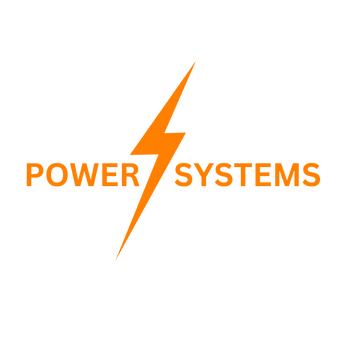When heading off-road, having a reliable power system is essential for running essential appliances like fridges, lights, and communication devices. Two of the most popular off-road power solutions are solar power systems and battery-powered setups. But which one is best for your needs? In this guide, we’ll compare the pros and cons of both to help you make an informed decision.
Why Power Systems Matter for Off-Road Adventures
Off-road trips take you far from traditional power sources. A reliable energy system ensures:
-
Consistent Power Supply – Keep appliances running without interruptions.
-
Safety and Convenience – Avoid being stranded due to battery failure.
-
Eco-Friendly Energy Use – Reduce fuel dependency with renewable solutions.
-
Cost Efficiency – Choose the best long-term investment for your needs.
Understanding Solar and Battery Power Systems
Before deciding on the best power source, let’s explore how each system works.
Solar Power Systems
Solar setups convert sunlight into electricity using photovoltaic (PV) panels. This energy can be used immediately or stored in a battery for later use.
Pros of Solar Power:
-
Unlimited Renewable Energy – As long as there’s sunlight, you have power.
-
Low Running Costs – Once installed, solar panels require minimal maintenance.
-
Eco-Friendly Solution – Reduces reliance on fossil fuels and generators.
-
Quiet Operation – Unlike generators, solar panels don’t make noise.
Cons of Solar Power:
-
Weather-Dependent – Requires sunlight to generate power, making it unreliable on cloudy days.
-
Limited Energy Storage – Must pair with a battery system to store excess energy for nighttime use.
-
Slow Charging – Solar panels take time to charge batteries fully, especially in low sunlight conditions.
-
Requires Space – Needs proper mounting space on your vehicle or campsite.
Battery Power Systems
Battery power systems store energy that can be used anytime, regardless of weather conditions. These setups often include lithium or lead-acid batteries charged via vehicle alternators, generators, or solar panels.
Pros of Battery Power:
-
Reliable Energy Anytime – Works in all weather conditions.
-
Fast Charging – Can be charged via vehicle alternators, solar panels, or generators.
-
Higher Energy Storage Capacity – Allows power use during the night or bad weather.
-
Compact and Portable – Can be stored in vehicles with minimal setup requirements.
Cons of Battery Power:
-
Limited Energy Supply – Once depleted, batteries need recharging.
-
Heavier and Bulkier – Especially lead-acid batteries.
-
Higher Initial Cost for Lithium Batteries – Although more efficient, lithium batteries can be expensive upfront.
Comparing Solar vs. Battery Power for Off-Roading
1. Energy Reliability
-
Solar Power: Reliable in sunny conditions but inconsistent in cloudy or shaded environments.
-
Battery Power: Provides consistent power regardless of weather, as long as it’s charged.
2. Power Output and Storage
-
Solar Power: Generates electricity but requires a battery for storage.
-
Battery Power: Stores energy for immediate or later use, ensuring 24/7 availability.
3. Charging Time
-
Solar Power: Slow charging, dependent on sun exposure.
-
Battery Power: Charges faster via vehicle alternators or generators.
4. Portability and Space Requirements
-
Solar Power: Needs panel installation space, either mounted on the vehicle or portable.
-
Battery Power: Compact but can be heavy depending on capacity.
5. Cost Efficiency
-
Solar Power: Higher upfront cost but lower long-term expenses.
-
Battery Power: Lithium batteries have a high initial cost, but lead-acid options are budget-friendly.
The Best Power Solution for Different Off-Roading Needs
For Short Trips (2-3 Days):
-
Best Option: Battery power system with alternator charging.
-
Why? No need for solar; a dual battery setup provides sufficient power.
For Extended Off-Grid Camping (1-2 Weeks):
-
Best Option: Combination of solar panels and a lithium battery.
-
Why? Solar extends battery life, ensuring sustainable power.
For Full-Time Overlanding:
-
Best Option: Large lithium battery bank + high-wattage solar system.
-
Why? Provides maximum reliability and long-term energy efficiency.
Final Thoughts
Both solar and battery power systems have their strengths and weaknesses. If you need consistent power in all conditions, a well-sized battery system is the best choice. However, if you’re looking for a renewable and sustainable power source, solar panels paired with a battery provide the best long-term solution.
At Off Power Road System, we offer premium off-road power solutions, including high-performance lithium batteries, dual battery setups, and solar charging systems. Contact us today to find the perfect power setup for your next off-road journey!
Looking for the Best Off-Road Power Solution?
Explore our range of off-road power systems and gear up for your next adventure with confidence!


